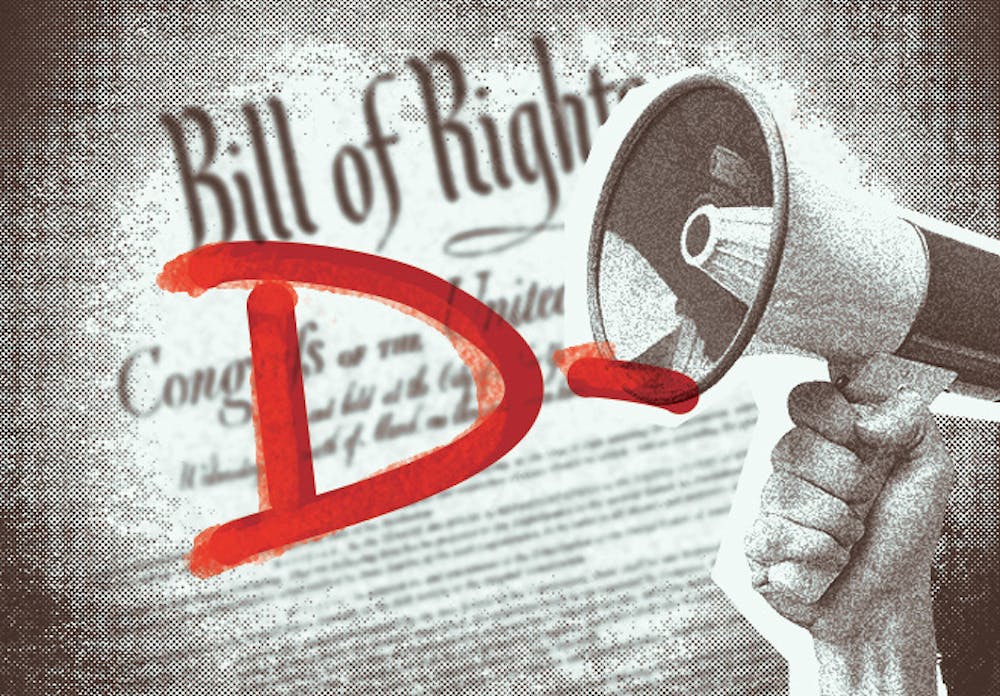This year, the Foundation for Individual Rights and Expression (FIRE) rated 257 United States universities on their free speech. Miami University received a “D-” rating in free speech climate, ranking 69 out of 257.
The ratings were determined by reviewing administrative policies and previous instances where universities prevented students from exercising their free speech, surveying students on how comfortable they are in expressing their beliefs and examining how tolerant students are in hearing opposing viewpoints.
Other Ohio universities received similar ratings. Wright State University had the highest rating in the state, with a “D”. Ohio State University and the University of Dayton both received an “F”. With an overall score of 61.1 out of 100, Miami was rated higher than the state average of 58.5.
Miami’s harrasment, discrimination and sexual harassment policies all earned a yellow speech code rating, meaning ambiguous wording could allow for administrative abuse and unfair application.
Drew Belcher, a junior political science major and the College Republicans chairman, said he believes some policies regarding gender discrimination are poorly written.
“[It’s] kind of a policy where if you were to misgender somebody, you’re facing the same kind of punishment as if you were to racially discriminate against somebody,” Belcher said.
Enjoy what you're reading?
Signup for our newsletter
Reactions to the “D” grade are varied.
“Part of me is shocked that it's that low,” Belcher said. “I have not had too many issues as far as freedom of speech.”
Rajarshi Banerjee, a former member of Students for Palestine, said he feels very differently.
“[The grade] is unsurprising, and honestly, it should be lower,” Banerjee said.
Last year, Miami threatened to suspend students involved in an encampment. Banerjee said he believes actions like these have generated fear of retaliation and caused a decrease in involvement in pro-Palestinian organizations. Threats of academic consequences and police involvement have led Banerjee to believe Miami should instead receive a “F” rating.
Connor Wike, the general secretary for College Democrats at Miami and vice president of College Democrats of Ohio, said he feels that he is free to exercise his right to free speech, but he worries that faculty and staff have less freedom. Wike pointed to the passing of Senate Bill 1 (S.B. 1) as a cause of decreased freedom.
“At the faculty level, I think there is a little bit of squandering of what they can say and what they can’t say in the eyes of the state government,” Wike said.
Banerjee said professors should be able to discuss their political beliefs. Belcher also said he agreed, saying students would then be able to acknowledge professors’ biases and think critically about what they are being taught.
“I wish more professors were not trying to act as if they’re objective,” Belcher said. “I get my news from openly right-wing and openly left-wing news sources because I know exactly what the angle is. I think it's better if you’re open about it.”
As faculty have become more wary about what they can say in the wake of S.B. 1, student organizations continue to work to express their beliefs.
“I do believe it’s important to engage with other people that may not hold the same opinions,” Wilk said. “[College Republicans and College Democrats] both have a common goal of pursuing free speech on campus and pursuing democratic values as a whole.”




